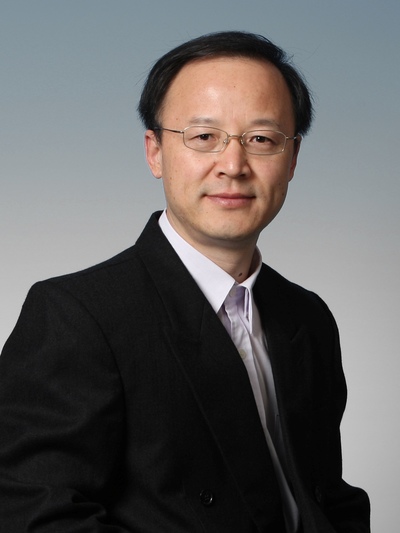Cunsheng DING
Cunsheng DING 丁存生
PhD in Computer Science, University of Turku
Professor
| Tel: | (852) 2358 7021 |
| Email: | |
| Office: | Room 2533 |
| Links: |
Personal Webpage Faculty Profile |

Telephone
(852) 2358 7021
Office
Personal Webpage
https://cse.hkust.edu.hk/faculty/cding/
Research Area
Theoretical Computer Science; Cybersecurity
Research Interests
Coding theory; Combinatorics; Cryptography
Biography
Cunsheng Ding was educated at Shaanxi Normal University (China), The Northwestern Telecommunications Engineering Institute (China), The University of Karlsruhe (Germany), and The University of Turku (Finland). His education has a background in physics, computer science and mathematics.
Prof. Ding was Lecturer of Mathematics for four years at Xidian University, China; and Assistant Professor of Computer Science for three years at The National University of Singapore, Singapore. Currently he is Professor of Computer Science and Engineering at The Hong Kong University of Science and Technology.
His main research fields are cryptography, security and coding theory. He has coauthored four research monographs published by Elsevier (1998, 2004), Springer Verlag (1991), World Scientific (1996), and the National Defense Press (1994).
Prof. Ding was a guest editor for four journal special issues on cryptography and coding theory, and is an editor of six other international journals. He has served on the program committee of numerous international conferences, and co-chaired three international conferences on cryptography and coding theory.
Prof. Ding was an invited researcher for the Program on Cryptography, Coding theory and Computer Security at The Isaac Newton Institute of Mathematical Sciences at Cambridge University (UK) in 1996, and an invited senior scientist for the Research Program on Coding Theory and Data Integrity at the Institute for Mathematical Sciences of The National University of Singapore in 2001.
Prof. Ding was an invited keynote speaker at four international conferences.
He is a recipient of the State Natural Science Award of China in 1989, the most prestigious award for research in China.





 Facebook
Facebook LinkedIn
LinkedIn Instagram
Instagram YouTube
YouTube Contact Us
Contact Us